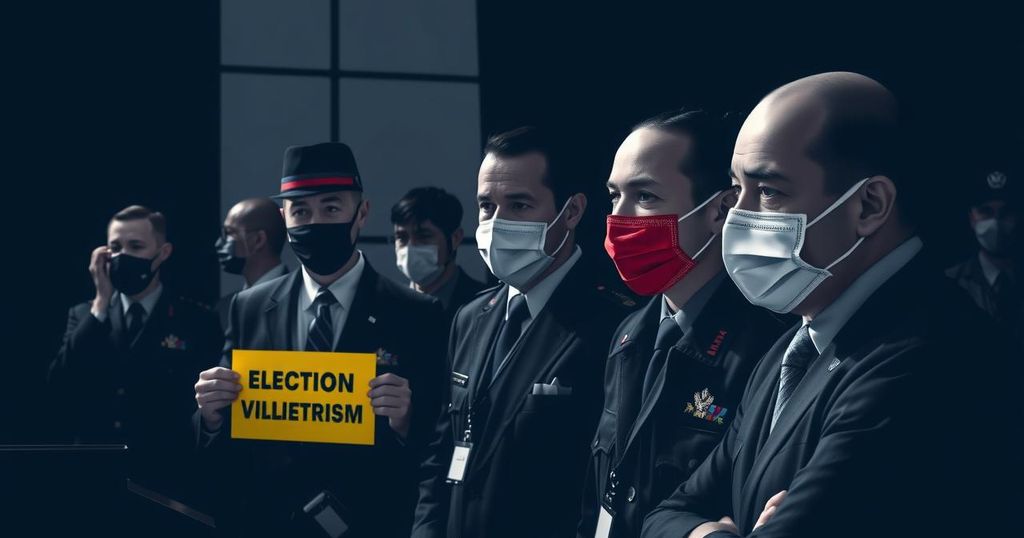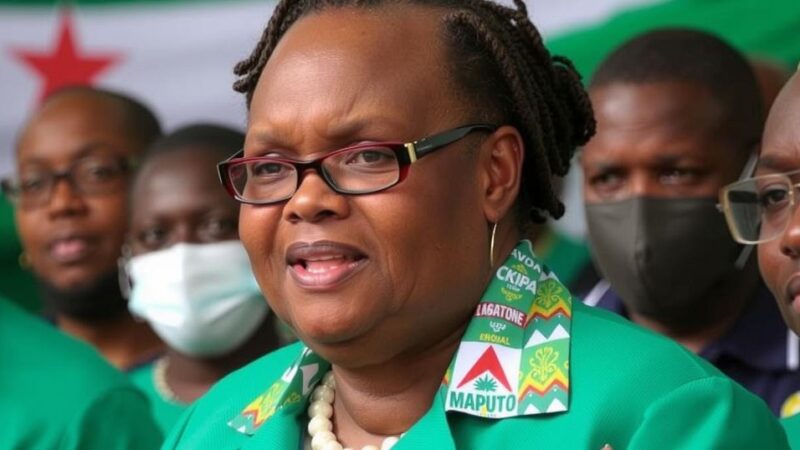In anticipation of the 2024 elections, a considerable increase in Republican poll watchers has occurred, aimed at monitoring voting for fraud. Concerns arise over the potential for intimidation and misinformation, as some officials fear worsening conduct by these watchers. With 175,000 volunteers mobilizing, the situation underscores both the distrust in the electoral system and the critical need to ensure safe and fair elections.
As the 2024 general election approaches, a surge of Republican poll watchers has emerged, driven by the party’s pervasive distrust in the electoral process. Notably, these individuals are organized in battleground states with the expressed intent of monitoring and preventing perceived voting fraud. Jeff Fuller, a retired Army Special Forces officer and organizer of a Republican poll-watching initiative in Virginia, remarked, “Their presence alone is kind of a deterrent, because everybody knows somebody is watching.” Poll watchers, a longstanding element of American elections, are volunteers from both major political parties tasked with observing the voting process. Their role involves reporting anomalies to party attorneys for further examination. However, concern is growing regarding the possible implications of increased partisan poll watching, especially when it risks devolving into harassment or intimidation of electoral officials and voters. According to Michael Whatley, the Republican National Committee Chairman, approximately 175,000 Republican volunteers are being trained to monitor polling places across the nation. In response, the Democratic Party has also mobilized legal teams and volunteer watchers. Andrew Garber from the Brennan Center for Justice noted the potential for partisan motivations to overshadow the intended transparency role of these poll watchers. Recent instances of poll watchers engaging in aggressive behavior have raised alarms among election officials nationwide. They cite examples from previous elections where observers disrupted the process, leading some to fear that the 2024 elections could witness an escalation in such unwelcome tactics. Furthermore, a prevalent belief in widespread electoral fraud has motivated many to step up as watchers, despite a lack of concrete evidence for these claims. Veteran election officials emphasize the need for strategies to de-escalate potential confrontations at polling sites. The growing pressure placed on election workers raises serious concerns about the safety and integrity of the electoral process. For instance, Tina Barton, a former Republican election official, shared her experience of receiving threats following the 2020 vote count, stating, “It impacts you forever.” Moreover, a Department of Homeland Security report has indicated a likelihood of unfounded claims of electoral fraud leading to violence during the impending elections. Fuller, while disavowing violence, defended the presence of partisan poll watchers as essential to restore public confidence in election integrity. In reflection of the current electoral landscape, Republicans are determined to assert their oversight, despite facing serious criticisms regarding the potential ramifications of their approach to poll watching.
The topic surrounding poll watchers in the 2024 elections is rooted in the profound distrust many Republican voters hold regarding the election process, particularly following the 2020 presidential election. The belief in significant fraud during that election has galvanized Republican constituents to mobilize as poll watchers, claiming to enhance accountability and deter any dishonest activity at the polls. However, this surge in watchers has raised concerns among election officials, who fear that their presence could lead to intimidation, disruption, or the propagation of misinformation during the voting process, an occurrence increasingly seen in past elections.
The mobilization of Republican poll watchers for the upcoming election demonstrates a critical intersection of heightened political tension and electoral oversight. While supporters argue that their presence promotes accountability, the potential for negative repercussions—from intimidation to misinformation—cannot be overlooked. As election officials prepare for the increased scrutiny, they must balance the intention of maintaining electoral integrity with the need to protect voters and workers from any undue pressure or threats.
Original Source: abcnews.go.com







